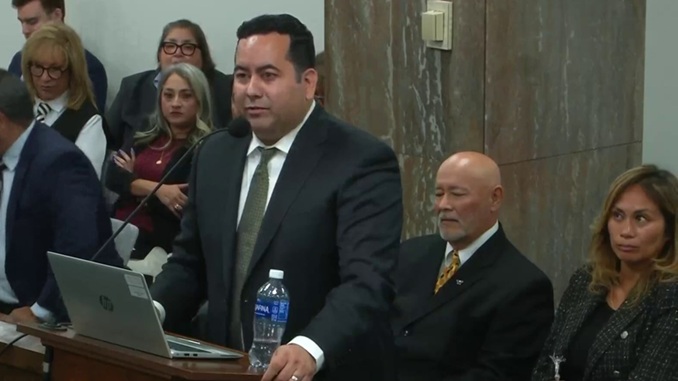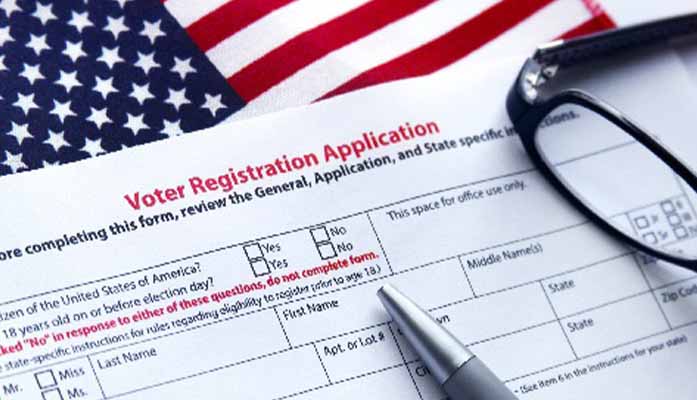
by Ethan Faverino | Jul 28, 2025 | Economy, News
By Ethan Faverino |
Arizona’s elderly population is facing a devastating wave of fraud, with seniors aged 60-69 losing a staggering $12,555,627 to scams in the first quarter of 2025, according to a new study done by cryptocurrency exchange ChicksX.
The Federal Trade Commission’s (FTC) Consumer Sentinel Network data reveals that 31.3% of Arizona residents in this age group targeted by fraudsters have suffered financial losses, with a median per-person loss of $1,000, nearly double the national average of $597.
The most common scams targeting Arizona seniors include business imposters (393 reports), government imposters (266 reports), and online shopping frauds (148 reports).
These scams exploit the trust of the elderly often through official-sounding phone calls, emails, or fake online deals.
Arizona ranks among the top states for fraud losses per report, with a per-report loss 99.8% higher than the national average.
The impact of fraud extends beyond the 60-69 age group. Arizona residents aged 70-79 filed 1,457 fraud reports with 29.3% resulting in financial loss, average $3,000 per person.
Those aged 80 and over reported 535 cases, with 28.8% losing funds at a median of $3,640 per incident.
In total, Arizona residents aged 50 and older lost over $41 million to fraud in Q1 of 2025.
“Fraudsters know that seniors may be more trusting, less familiar with online platforms or purchases, or unaware of how sophisticated modern scam attempts have become,” said CEO of ChicksX, Al Alof. “It’s essential that families and communities talk openly about these risks and the warning sign to prevent vulnerable individuals from falling victim.”
Nationally, 60,379 fraud reports were filed by those aged 60-69 in Q1 of 2025, with 29% resulting in financial losses totaling $354.9 million. Arizona ranks third among the hardest-hit states.
The states with the highest average fraud losses per report for this age group are:
- Alaska: $1,415 per report (121 reports, 26.4% with loss)
- North Dakota: $1,404 per report (79 reports, 39.2% with loss)
- Kansas: $1,000 per report (488 reports, 21.1% with loss)
The states with the lowest average fraud losses per report for this age group are:
- Vermont: $149 per report (118 reports, 24.6% with loss)
- South Dakota: $170 per report (118 reports, 44.1% with loss)
- Maine: $174 per report (396 reports, 18.9% with loss)
Al Alof and ChicksX share that the three tips to help avoid falling victim to fraud are, be suspicious of deals that are “too good to be true,” don’t answer calls that are unfamiliar, specifically ones that claim to be from Social Security or Medicaid, and ask family for help with unfamiliar phone calls or emails.
Ethan Faverino is a reporter for AZ Free News. You can send him news tips using this link.

by Ethan Faverino | Jul 27, 2025 | Education, News
By Ethan Faverino |
Arizona State University (ASU) has lost 27 grants from the National Science Foundation (NSF) so far this year, worth approximately $28.5 million. Many of the grants were tied to Diversity, Equity, and Inclusion (DEI) initiatives.
These cuts, part of a broader shift in NSF priorities under the Trump administration, target projects with DEI-related terms like, “equitable,” “underrepresented,” and “racial.”
Among the affected grants were five ASU projects, previously assigned $7,659,588, which heavily emphasize DEI.
Grant Number 2315041 ($2,404,767) funded Collaborative Research: Black Girls as Creators: an intersectional learning ecosystem toward gendered racial equity in Artificial Intelligence education. Running from October 2023 to September 2028 (terminated April 18, 2025), it supported after-school and summer camps for black girls aged 9-14 to collaborate with AI creators, focusing on intersectionality and racial equity.
Grant Number 2411987 ($733,633) funded Positioning Engineering Faculty to Support Black Engineering Graduate Students through Awareness, Knowledge, Capacity Building, and Community. Starting September 2024 and ending August 2029 (terminated April 25, 2025), it trained faculty at ASU and George Mason University in antiracist orientations using virtual reality simulations to address systemic barriers for black graduate students, prioritizing competency over technical skills.
Grant Number 1824260 ($2,999,743) funded an ADVANCE Institutional Transformation project from September 2018 to August 2025 (terminated May 2, 2025), aimed to reshape faculty policies for gender equity and intersectionality, potentially undermining merit-based standards.
Grant Number 2101039 ($931,058) funded Collaborative Research: Accessible Computational Thinking in Elementary Science Classes within and across Culturally and Linguistically Diverse Contexts, ran from August 2021 to July 2025 (terminated April 25, 2025). It trained 60 elementary school teachers in “Culturally Relevant Teaching” for diverse students, which compromised core STEM content.
Grant Number 2236374 ($590,387) funded Increasing the Effectiveness of Justice, Equity, Diversity, and Inclusion-Focused Institutional Change Teams through a Community of Transformation, ran from April 2023 to April 2025 (terminated April 18, 2025). It supported a “Community of Transformation” for JEDI (Justice, Equity, Diversity, and Inclusion) change agents, emphasizing change over academic standards.
These cancellations align with NSF’s new priorities to avoid projects that prioritize certain groups, as appromixately 94% of canceled grants nationwide included DEI-related terms.
These DEI-focused projects diverted resources from universal STEM advancement, prioritizing ideological goals over merit.
The full list of terminated NSF grants is avaiable here.
Ethan Faverino is a reporter for AZ Free News. You can send him news tips using this link.

by Matthew Holloway | Jul 27, 2025 | News
By Matthew Holloway |
In an announcement on Tuesday, Gannett Co., Inc., the parent company of the Arizona Republic, revealed that the newspaper will no longer be printed at the company’s Deer Valley Printing Facility in North Phoenix. The facility will be shut down with its 117 employees laid off.
According to AZCentral, the last copies of the Arizona Republic will roll off the presses at the 300,000-square-foot plant on October 5th, and the newspaper will be printed, packaged, and distributed from the company’s Las Vegas facility.
Lark-Marie Antón, Gannett chief communications and brand officer, explained in a statement, “Where our newspaper is printed does not impact our ability to deliver outstanding journalism. The Arizona Republic will continue to provide readers with quality, local content that matters most to them, and to connect our valued advertising partners with the customers they want to reach.”
Antón did not address the impact on Phoenix except to say that all of the facility’s employees involved in printing and packaging would receive severance packages: “We deeply appreciate the years of service our knowledgeable, skilled staff has dedicated to our Phoenix facility and the local community.”
The outlet reported that the 20-acre property where the plant stands has been acquired by Atlas Capital Partners of Scottsdale and New York-based DRA Advisors, with Atlas CEO Chris Walton saying, “The location, distinctive building characteristics, lower coverage and proximity to TSMC (Taiwan Semiconductor Manufacturing Co.) all added to the allure of this acquisition.”
One employee who spoke to Fox 10 said, “After Oct. 1, it’s no longer a local paper. The amount of papers that we were doing, the amount of work we were doing for the 117 people there, it doesn’t make sense why they would cut our positions.”
The anonymous employee with almost 15 years at the facility told the outlet, “I’ve held almost every position they’ve had from an insert machine…to maintenance machinist supervisor,” he added that the announcement was “jarring.”
According to KTAR, the Deer Valley Facility also printed the Arizona Daily Star (Tucson), the Arizona Daily Sun (Flagstaff), as well as out-of-state publications such as The New York Times, USA Today, and other newspapers delivered in Arizona, New Mexico, and California. The move by Gannett will leave the Yuma Sun as the largest daily newspaper by circulation still printed in Arizona.
Matthew Holloway is a senior reporter for AZ Free News. Follow him on X for his latest stories, or email tips to Matthew@azfreenews.com.

by Matthew Holloway | Jul 26, 2025 | Education, News
By Matthew Holloway |
Tolleson Union High School District Superintendent Jeremy Calles found himself the subject of intense grilling at the hands of Joint Legislative Audit Committee (JLAC) Co-Chairmen Matt Gress and Mark Finchem during a three-hour hearing this week. Following the exchange, Gress told reporters that he and Finchem “will be reviewing our options with the Auditor General.”
The fiery hearing came about in response to concerns over a Tolleson Union High School District (TUHSD) leaseback deal with the Isaac Elementary School District that would see TUHSD purchase Isaac Middle School for $25 million with the elementary district then leasing the building at an interest rate of 6%.
Calles revealed in the hearing that he holds two professional roles, one as a consultant and the second as Superintendent, and he confirmed to the committee that initial conversations on the deal began in his role as a consultant.
He told the JLAC, “The first conversation I had came from a text message from, yes, the prior superintendent, Mr. Mario Ventura, who texted me and asked if I could take a look at his finances.”
Calles explained that when his district became involved, his role in the deal changed, although he claimed to have never billed for the conversation and never contracted with Isaac Elementary School District as a consultation client.
“This is not a new concept; the only thing novel on this idea is that both sides of the transaction, you have a school district. Everything else about this transaction, both sides of the transaction are not unseen,” he told lawmakers.
The Superintendent said that the agreement between the districts lacked a prepayment penalty, had no lock-in requirement, and aided the district in a financial crisis. He suggested that the benefit for TUHSD students was in generating up to $7 million in funding for the district. However, committee members balked at this suggestion, noting that although the district holds a “B” letter grade from the Arizona State Board of Education, only 30% of its students are proficient in Mathematics, English, and Language Arts.
Gress challenged him, “Here, you have not been able to demonstrate the $25 million financial transaction benefiting Tolleson Union students directly, given that you have no square footage, you’re not providing any learning services. It’s not even in your district so this is far beyond novel. I think you’ve made a mockery of our state law.”
He added, “I think you should be ashamed of yourself for the way you’ve mistreated taxpayers of Tolleson Union.”
The Superintendent was later asked by Rep. Carbone, “Why doesn’t every school district now just follow your lead and start making money and become a bank?”
In a reponse that appeared to show defiance, he said, “I don’t think every school district has a superintendent willing to stand in front of you like this.”
As reported by State 48 News, Calles confirmed that he utilizes his district office to conduct personal business during working hours. The outlet noted that under questioning it was further revealed that two members of the school district are also employed by the Superintendent through his consultancy.
When pressed to answer questions from Tolleson City Manager Reyes Medrano Jr., along with Police Chief Rudy Mendoza and former Superintendent Kino Flores regarding his conduct, including an alleged request for Tolleson to pay Calles’ real estate broker an $85,000 fee related to the district’s purchase of city land, Medrano suggested this violated state procurement laws.
“The 85 was going to be on top of the purchase price, and then we were supposed to pay the broker with it,” he told the committee. According to Medrano, Calles told him “it would be cleaner” to do so.
Calles lashed out in response, claiming the allegation “borderlines defamation.” He said in full: “I believe that borderlines defamation, the way he made that implication as if something nefarious was happening.”
Speaking with a reporter, Calles rejected the allegations saying that “they’re all lies. Do you see our improvement on the letter grade system? You see that our schools are moving up on their performance?”
The Superintendent told 12News that he expected the committee to request review of his conduct by the Arizona Auditor General and said, “When the Auditor General’s Office finally sends me someone, I’ll give them the full story.”
In a statement following the hearing, Gress said, “The hearing today revealed deeply troubling information that shows a pattern of disregard for public transparency. Combining public service with private consulting work, including using Tolleson District facilities and employees to support superintendent Calles’s consulting company reeks of corruption. Chairman Finchem and I will be reviewing our options with the auditor general.”
Matthew Holloway is a senior reporter for AZ Free News. Follow him on X for his latest stories, or email tips to Matthew@azfreenews.com.

by Matthew Holloway | Jul 26, 2025 | News
By Matthew Holloway |
Congressman Andy Biggs’ gubernatorial campaign reported significant gains in fundraising during the second quarter of 2025 with a haul of $429,000. It marks the single largest fundraising quarter for Biggs in his career thus far.
The campaign reported that Biggs’ fundraising performance improved by almost $200,000 over the first quarter and noted, “This shows momentum and enthusiasm for his campaign with additional room for growth as his digital fundraising operation begins to build out.”
In a statement to AZ Free News, Biggs’ Campaign Senior Advisor Drew Sexton said, “We’re very pleased with our past quarter as Congressman Biggs more than doubled his cash on hand, received endorsements from President Donald J. Trump and Charlie Kirk, and continues his strong performance in every public poll with the set field of GOP candidates. We look forward to building on this in the coming months as the Congressman shares his vision for Arizona with voters from across the state.”
According to Capitol Media Services, Biggs’ primary opponent, Karrin Taylor Robson, narrowly outperformed Biggs in fundraising with $575,000 in individual donations and $2,500 from PACs in the second quarter. However, Robson also reported loaning her campaign over $2.2 million, which has been all but spent on advertising President Donald Trump’s endorsement of Robson.
The Biggs campaign made note of this in an email to AZ Free News stating, “The Biggs for Arizona campaign has an end of Q2 COH of $437K, more than doubling the campaign’s Q1 COH indicating a sustainable level of spending in comparison to the over $2.7M already spent by his primary opponent.”
According to Axios, the state of play as of this report is that:
- Democrat incumbent Governor Katie Hobbs, running effectively unopposed in her primary, has raised the most funds in the second quarter of 2025, netting approximately $1.3 million and held about $4.7 million cash on hand.
- Robson brought in $2.8 million, but as noted, $2.2 million was her own money. She has less than $900,000 remaining and is spending rapidly.
- Biggs however raised $429,000 and closed the quarter with about $437,000 on hand, showing consistent, steady growth.
As reported by AZ Free News in early June, Biggs’ advertising spend has been supplemented what Turning Point PAC declared “the largest launch event in Arizona gubernatorial primary history,” complete with a media campaign costing over $500,000, with the “Biggs for Governor” Rally hosted by Turning Point Action and Turning Point PAC itself counting for “an additional $780,000 in earned media value (EMV),” according to a press release.
Turning Point PAC said in a statement at the time, “Taken as a whole with Turning Point PAC’s $500,000 media buy announcement, the organization’s independent expenditures and organizing to support Biggs’s primary launch already amounts to over $1,400,000.”
Matthew Holloway is a senior reporter for AZ Free News. Follow him on X for his latest stories, or email tips to Matthew@azfreenews.com.

by Jonathan Eberle | Jul 25, 2025 | News
By Jonathan Eberle |
The Republican Party of Arizona, led by Chairwoman Gina Swoboda, has filed an amicus brief in federal court defending the requirement for proof of citizenship in voter registration. The brief, submitted alongside the Restoring Integrity and Trust in Elections PAC (RITE PAC), aims to bolster efforts to preserve what party leaders describe as “the integrity of American elections.”
The filing was made in the U.S. District Court for the Western District of Washington, where legal challenges have arisen over whether federal voter registration forms can mandate documentary proof of citizenship.
Citing the National Voter Registration Act (NVRA), the Arizona GOP and its allies argue that the Election Assistance Commission (EAC) has the legal authority to require applicants to provide citizenship documentation. The brief claims this interpretation aligns with Arizona’s longstanding election laws, which include similar provisions at the state level.
“Protecting election integrity is essential to preserving trust in our democratic process,” said Swoboda in a statement. “Arizona Republicans have long advocated for sensible measures that ensure accuracy in voter registration and protect our elections from fraud. This brief underscores our continued commitment to transparent, fair, and secure elections.”
The brief also defends a Trump-era executive order that directed public assistance agencies to ask applicants about their citizenship status before offering a voter registration form. According to the filing, this directive is not only legal but necessary to uphold the original intent of Congress in limiting voter registration to U.S. citizens.
Supporters of the measure argue that such rules are a common-sense way to protect elections from outside interference or administrative error. While the court has not yet ruled on the underlying case, the Arizona GOP’s legal intervention signals a broader Republican strategy to champion election security measures heading into the 2026 midterms.
The Republican Party of Arizona has remained vocal in national conversations around election reform, frequently advocating for voter ID laws, voter roll maintenance, and what they consider safeguards against fraud. With this latest legal move, the party is reaffirming its position at the forefront of what it views as a critical issue.
Jonathan Eberle is a reporter for AZ Free News. You can send him news tips using this link.






